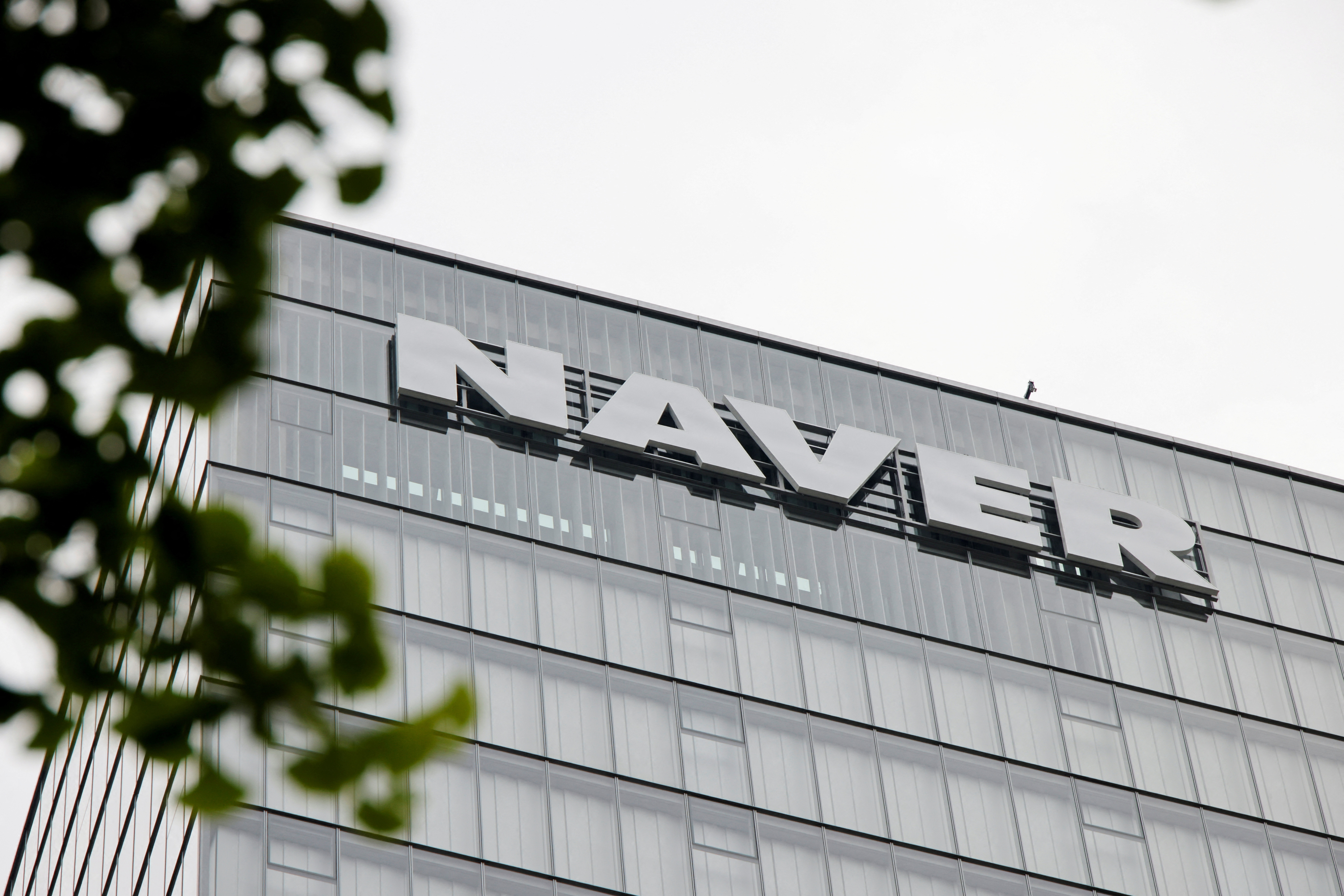
A general view of the Naver sign on its office building in Seongnam, South Korea, May 13, 2022. Picture taken May 13, 2022. REUTERS/ Heo Ran/File Photo Acquire Licensing Rights
SEOUL, Aug 24 (Reuters) – South Korean internet giant Naver (035420.KS) unveiled its own generative artificial intelligence (AI) tool on Thursday, joining the frenzy around the new technology initiated by OpenAI’s ChatGPT chatbot.
Despite the hype around the burgeoning technology and billions of dollars of investment, most companies and developers have yet to monetise the technology.
Naver said its AI product, named HyperCLOVA X, will provide generative AI-driven searches for users as well as new customised services for enterprise clients.
HyperCLOVA X has a suite of tools including chatbot application CLOVA X aimed at improving web search, online shopping and navigation services, and a generative AI function Cue: that can be plugged into its search engine.
Naver will start beta services for CLOVA X from Thursday, and for Cue: in September, according to the company.
Naver has said it is jointly developing with Samsung Electronics (005930.KS) new chip solutions that will be smaller and more efficient to support its AI technology development.
The company plans to open a new data centre for the HyperCLOVA X services in November, Naver said on Thursday.
“We are ready to face a new transformation called generative AI,” Naver Chief Executive Choi Soo-yeon said.
“Now in the era of generative AI, a fierce battle is under way to get picked by services and business partners,” Choi told a crowd of people at its launch event in Seoul.
While it is behind frontrunners such as Microsoft (MSFT.O)-backed OpenAI and Alphabet’s (GOOGL.O) Google, Naver and its domestic rivals are looking to tap niche markets that have not yet been addressed by U.S. and Chinese tech giants.
Naver is looking to develop localised AI applications for countries with political sensitivities in the Middle East as well as for non-English speaking countries and regions, such as Japan and Southeast Asia.
Choi said the company was in talks with global partners about its new AI services’ overseas expansion but it was not ready to identify those partners.
Reporting by Ju-min Park; Editing by Miyoung Kim and Sam Holmes
Our Standards: The Thomson Reuters Trust Principles.

/cloudfront-us-east-2.images.arcpublishing.com/reuters/5VWH6WYS7ZLBXGGNYBSCPTJTI4.jpg)